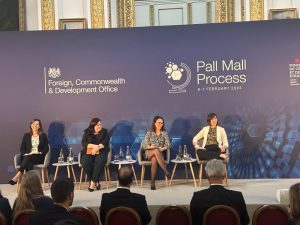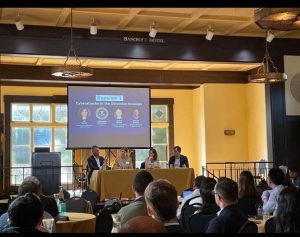Last week, I participated in an expert workshop on challenges in the cybersecurity of space systems. The goal of the workshop was to present and collectively consider possible scenarios and their implications from technical/technological, ethical, legal, and relevant policy perspectives.
Through futuristic scenarios that sounded very plausible, and with the help of fictional science authors, we thought about a variety of risks that could occur in the not-too-distant future.
Using scenarios allowed us to think about what is possible, what could happen, and not just what actually happened. In this way, the boundaries of thinking (and imagination) expand.
Among the topics we discussed were: how to build scenarios? What distinguishes cyber threats for space systems from other systems? How to breach a satellite? What motivates attackers? What are the relevant space laws and what is missing in the field when it comes to cyber threats? What are the norms of acceptable behavior in cyberspace and how are they relevant to space systems? And what are the ethical considerations that need to be taken into account?
Among the open questions that remain – how do we assess risk? Since spacecraft have limited resources – how much should we invest in cyber protection? How do we create integration between IT and OT to improve defense? What are the second and third-order effects of cyber attacks on space systems?
According to current law, governments are responsible for activities in space, even if conducted by private companies.
However, in the United States, space systems are not yet defined as critical infrastructure, so threats to them – including cyber threats – are addressed by various entities, including the government, military and defense department, NASA, private entities, non-profit organizations, and others.
Personally, I felt that the use of scenarios allowed me to think differently and to consider cases and responses that I did not consider in the past.
The final outcome of the workshop will be a report submitted to the American National Science Foundation – I am looking forward to reading it!




